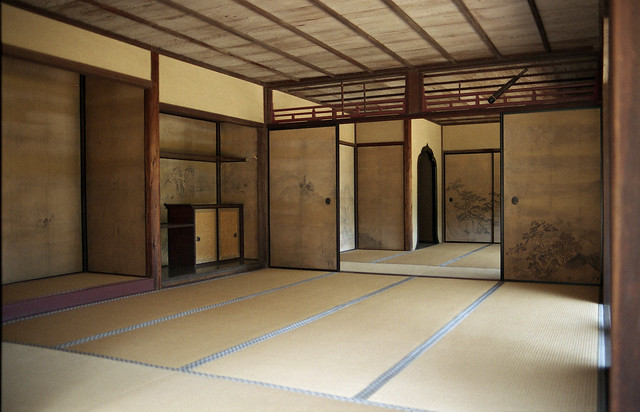If a Japanese person compared something to practising swimming on a tatmi mat, what would you think they meant?
The idiomatic expression 畳の上の水練 (tatami no ue no suiren) means literally “swimming practise on tatami”, and refers to “useless book learning; knowing the theory but being unable to put it into practice”. It is also written 畳水練 (tatami suiren) .
Other tatami-related idioms include:
- 畳の上で死ぬ (tatmi no ue de shinu) = to die a natural death, to die in one’s own bed (“to die on tatami”)
- 畳み掛ける (tatmi o kakeru) = to press for an answer, to shower questions on someone (“to hang up tatami”)
The character 畳 (tatami / jō) refers to the traditional Japanese straw floor coverings, also known as tatami or tatami mats. The area of rooms in Japanese houses is measured by the number of tatami they contain or could contain. One tatami is 1.82 sqm or 1.54 sqm. An older version of the character is 疊. The same character means folding paper-case or kimono wrapping paper when pronounced tatō.
The verb 畳む (tatamu) means to fold (clothes, umbrellas, etc), to close (a shop or business) or to vacate. 畳み地図 (tatami chizu) is a folding map, 畳みじわ (tatamijiwa) is a crease, and 畳み椅子 (tatami isu) is a folding chair.
Source: jisho.org
